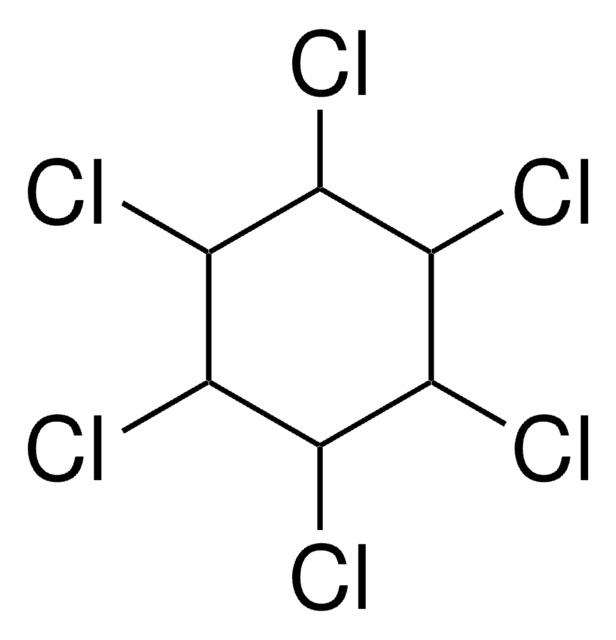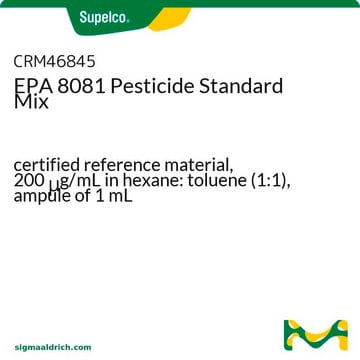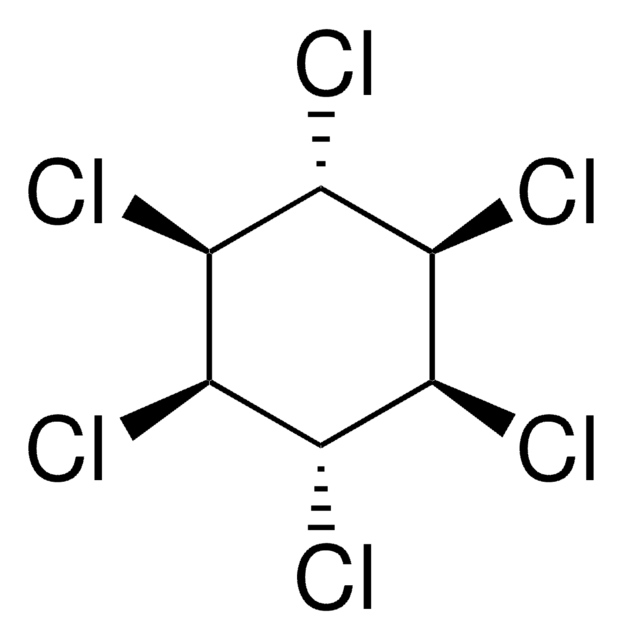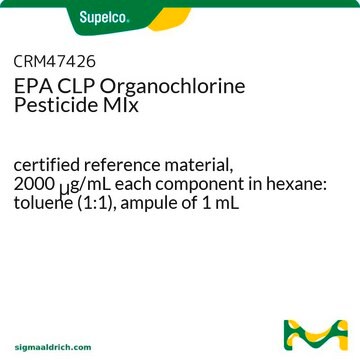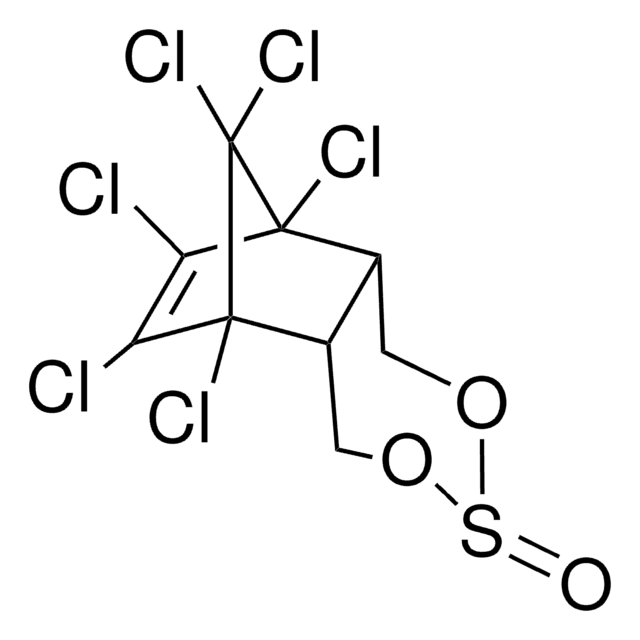33856
α-HCH
PESTANAL®, analytical standard
Synonym(s):
α-1,2,3,4,5,6-Hexachlorocyclohexane, α-BHC
About This Item
Recommended Products
grade
analytical standard
Quality Level
product line
PESTANAL®
shelf life
limited shelf life, expiry date on the label
technique(s)
HPLC: suitable
gas chromatography (GC): suitable
mp
156-161 °C (lit.)
application(s)
agriculture
environmental
format
neat
SMILES string
Cl[C@@H]1[C@H](Cl)[C@@H](Cl)[C@H](Cl)[C@@H](Cl)[C@H]1Cl
InChI
1S/C6H6Cl6/c7-1-2(8)4(10)6(12)5(11)3(1)9/h1-6H/t1-,2-,3-,4-,5+,6+/m1/s1
InChI key
JLYXXMFPNIAWKQ-SHFUYGGZSA-N
Looking for similar products? Visit Product Comparison Guide
Related Categories
Application
Legal Information
Not finding the right product?
Try our Product Selector Tool.
Signal Word
Danger
Hazard Statements
Precautionary Statements
Hazard Classifications
Acute Tox. 3 Oral - Acute Tox. 4 Dermal - Aquatic Acute 1 - Aquatic Chronic 1 - Carc. 2
Storage Class Code
6.1C - Combustible acute toxic Cat.3 / toxic compounds or compounds which causing chronic effects
WGK
WGK 3
Flash Point(F)
Not applicable
Flash Point(C)
Not applicable
Personal Protective Equipment
Choose from one of the most recent versions:
Certificates of Analysis (COA)
Don't see the Right Version?
If you require a particular version, you can look up a specific certificate by the Lot or Batch number.
Already Own This Product?
Find documentation for the products that you have recently purchased in the Document Library.
Customers Also Viewed
Our team of scientists has experience in all areas of research including Life Science, Material Science, Chemical Synthesis, Chromatography, Analytical and many others.
Contact Technical Service

